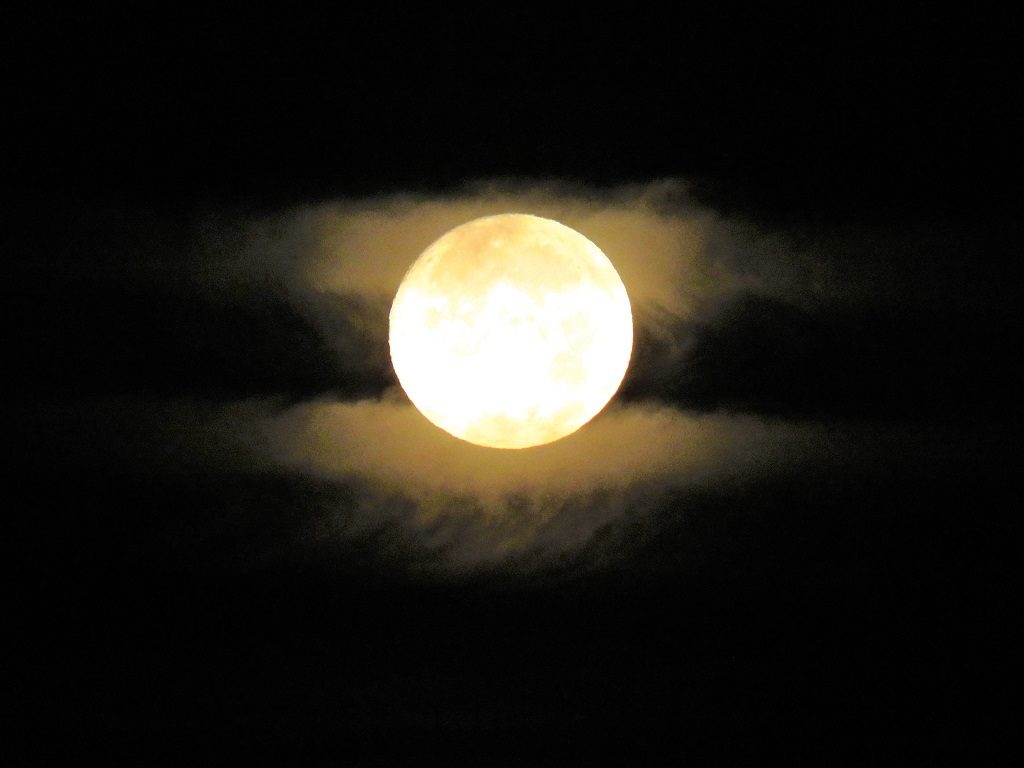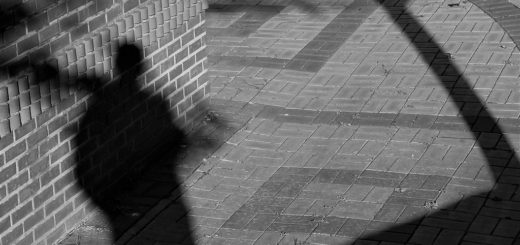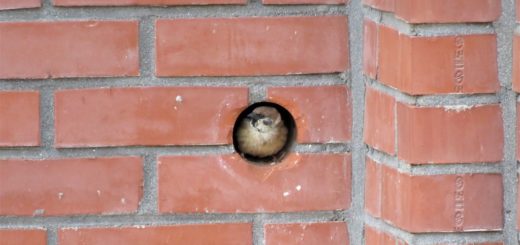Melancholy, Modernity, and the Free Soul
Kafka’s burden — the bureaucrat of practical necessity suffocated by life in the bureau — embodies in its tortured anxieties the modern diminution of the raging Heracles: Why must I, a soul full of passion, strength, and cravings for eternity, succumb to these expectations of others, to these odious priorities of daily life, to the duties of my lot, my status, my family, my office? Will divinity and freedom ever be found here, under the ruling whims of others with their demands — or of my own body with its demands? Or is all of this, in the end, mere blind, mindless necessity?
The melancholic is inclined to rage against the world, but this is often his way of raging against his truest target, namely himself. For the melancholic, above all types, is naturally tuned to experience the world as himself, with all its heavenly motions, earthly struggles, and subterranean corruptions being in a sense manifestations or realizations of his soul; for his is both the worldliest and the most isolated nature, and his life a continual, ever-expanding quest for order in chaos. Hence, “the state of things,” from the political to the familial, when it turns particularly oppressive, irrational, and ugly — most chaotic, if you will — is experienced most keenly by the melancholic, for whom such deterioration feels like something of a personal failure. His rage against the world’s stupidity, especially when the rage is justified and the stupidity incorrigible, radiates the most intense self-contempt.
Modernity has largely robbed melancholy of its meaning and cosmic significance, by robbing freedom of its meaning and psychological significance. Modern philosophy, obsessed with practical equality and its thought-diminishing fantasy of universal enlightenment, has redefined freedom as randomness, or rather, stated in political terms, as the right to be random. This is freedom reduced to spiritual chaos and lack of purpose, except for the deflated purpose of protecting and aggrandizing the chaos itself, which purpose we moderns call “self-preservation,” or even, more recently, “self-fulfillment.”
Having lived so long in the dim light of this degraded notion of freedom, it now seems counterintuitive to us, or even self-contradictory, to see freedom as the ancient thinkers did, namely as a higher (i.e., nobler) form of limitation or restraint — the self-restraint of the civilized individual, who neither requires nor responds to any external coercion to live rationally — which derives its meaning by analogy with the relation of the true governor to his governed domain.
Aristotle, in Metaphysics XII, having completed his famous and extraordinary account of the nature of the first unmoved mover, aka God, as “thought thinking itself,” proceeds to address a final question regarding that divine intellect’s status relative to the world of motion which it causes and sustains. Specifically, he asks whether the good exists essentially as something separate and independent from the whole, or rather within the whole as the order of its parts. His conclusion is that both answers are in different senses correct, but that the former, i.e., separate existence, is the primary sense, just as the general of an army is more of the essence of that army’s efficient functioning than is the internal order of the whole, since the general’s existence does not depend upon the order, whereas the order’s existence depends upon him. Likewise in the case of the divine intellect in relation to the world as a whole.
Everything is ordered to one end; but the arrangement is like that of a household, where the free persons have the least liberty to act at random, and have all or most of their actions preordained for them, whereas the slaves and animals have little common responsibility and act for the most part at random. (Metaphysics, XII.x, 1075a18-22, translated by Hugh Tredennick, Cambridge, Mass.: Harvard University Press, 1935.)
In this household analogy, then, God stands as “the free persons,” whereas we humans have a status analogous to the slaves and animals in the household, bearing little significance in the overall order of things, and therefore having greater “liberty to act at random.” And if we may extend Aristotle’s perfect analogy from the metaphysical realm into the personal, we may infer that just as any rational slave will wish to become free, so, to borrow Aristotle’s own formula from the Nicomachean Ethics X.vii, the free man must strive, to the extent of his natural ability, “to become immortal,” which means to live in accordance with the divine part of himself. In other words, he must struggle, against all earthly obstacles and limitations, to become a god or a friend of the gods.
This is Aristotle’s most poetic (and Platonic) description of the contemplative or philosophic life. But notice that this craving for immortality, which is identical with the desire for true freedom, does not lead to the slavish “liberty to act at random,” but precisely the opposite. Freedom in the truest and highest sense, contrary to the political tendency of modern thought, means freedom from the randomness and insignificance of ordinary material existence. True freedom is that of the separate and independent beings which “have all or most of their actions preordained for them.” In other words, to become such a free being, to the extent humanly possible, requires the peculiarly philosophic moderation (i.e., the enthusiasm and natural discipline) to narrow the aim and vision of one’s life to its essence, which in turn involves an inevitable winnowing process, as the various distractions and false promises of ordinary human life “drop off,” to use Nietzsche’s apt description of a similar process in The Gay Science (§304). Eventually, the soul, naturally self-disciplined by this obsessive quest for its divine spark, becomes as pointed and purposeful as an arrow, and hence severely limited in its range of behavior, rather than flabbily unguided and random in its actions and choices, which is the condition of souls without such focus and intensity.
One way to express the meaning of this notion of freedom as a form of self-limitation is that the randomness of slavish liberty — life without a defining aim, mere subjective “lifestyle choices” with no natural goal — is undesirable, or even abhorrent, to the well-guided soul, which feels itself increasingly separate from, and independent of, “the household,” so to speak. Another way to express it is that the desire to live in accordance with the “divine part of oneself” necessarily entails a desire to participate, as far as humanly possible, in the ordering principle of the cosmos, which means to earn a sliver of detached and atemporal being.
And what would such a goal imply about the soul seeking it, if not that its nature is to desire order with the greatest urgency? Not to be orderly, but to desire order, which is a very different thing. To desire something is to lack it while intuiting a need for it, which is to recognize the thing as beautiful by contrast with its context, or its absence — including its context or absence within oneself. This particular craving, at least at its highest intensity, is specifically the desire of a spirit that most deeply apprehends the chaos or randomness of materiality as such, and is therefore driven to draw order out of the chaos, following an impulse that has less in common with “academic interest” than with a daring last-minute escape.
This spiritual recognition of chaos, particularly when combined with a feeling of being mired in that chaos like a drowning man, is part of the essential experience of melancholy. The Aristotelian school, which of course understood melancholia in its ancient Greek medical sense, as a condition of the individual who suffers from an innate excess of black bile, tells us, in the seminal and most important philosophic treatise on this topic, that most of the greatest men, and even some of the mythological heroes, were melancholics. This extreme sensitivity to, and aversion towards, the suffocating randomness of earthly life, which gives rise to an excess of contempt, including at times self-contempt, nevertheless also fostered and fueled the souls of Heracles, Bellerophon, Empedocles, Socrates, and Plato — not to mention, unquestionably, Aristotle himself, history’s supreme general of a cosmic orderliness that strains eternally against the randomness of matter, the exemplary case of divine nobility in the face of chaotic humanity.
So deserted by myself, by everything. Noise in the next room. (The Diaries of Franz Kafka, 1910-1913, p. 250)
To redefine freedom as the right to be random, or rather to reduce freedom to that, as modernity has done, is to embrace chaos as not merely an inevitable challenge, but as an intrinsic good. In its ultimate psychological effects, this is nothing but a call to nihilism, which, for the melancholic soul, means a precipitous descent into the smallness of inescapable suffocation within cosmic, social, and spiritual disorder. The right to be random is freedom for the material cosmos as such, at the expense of the freedom of reason, freedom as self-governance. This modern freedom thus entails the absolute reversal of the condition in which the melancholic soul may find its purpose, its quest for the beauty of a principle of order that it may realize within itself, as well as within the whole, or rather as the whole.
Today, melancholy has been renamed with such terms as “depression” or “bipolarity,” pseudoscientific accounts perfectly calibrated to retain the appearance of medical causality while dispensing outright with the phenomenon that truly requires explanation, namely the nexus between this “condition” and the highest spiritual development, which was so obvious to the ancients. The problem is that melancholy, in its noblest forms, is simply undemocratic, or more generally a challenge to certain intellectual and political demands of egalitarian modernity. We must therefore “treat” the melancholic, in the sense of seeking to cure or stifle him. For a world without Platos and Aristotles, heroes and poets, is more comfortable for modern man. Economists and technologists, entertainers and activists are sufficient for our purposes; our “heroes” are those who help us all fit in and feel the same, rather than those inclined to feel crushed or paralyzed by the sameness of it all.



